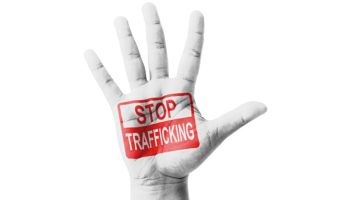“Takin’ it to the Streets”*
Hard to believe—bi-partisan legislation on human trafficking that makes sense
- |
- Written by John Byrne
- |
- Comments: DISQUS_COMMENTS

So many opportunities exist to bemoan the lack of civility in politics, the media, and society in general. At the risk of saying—yet again—that earlier times saw a closer working relationship between elements of the AML community, I will say it was so.
Specifically, the development of anti-money laundering legislation in the 80s, 90s, and after 9/11 occurred with a solid partnership between the regulated, policymakers, and the agencies charged with implementing laws into regulations. In the U.S., there was no such thing as a Republican or Democratic approach to address money laundering—just a congressional response.
Imagine that.
Everything was not perfect, I’ll admit. I still remember bringing in a number of banks, in good faith, to explain AML processes to congressional staff, only to be subpoenaed afterwards, and a hard lesson learned by yours truly.
However, for the most part, law enforcement wanted access to information for investigations and regulators understood their mission—ensure that strong processes to provide such information both existed and were tested.
The last few years of watching policy “debate” from afar tells me I made the correct decision to leave that arena.
Now, there is a proposal that makes me pine for the good old days.
Human trafficking—a cause for all
We have seen strong evidence of public-private partnerships in this country and elsewhere to attack the horrific crime of trafficking in persons. It still amazes me that there are so many being held against their will in the 21st Century.
The State Department quotes a figure of 21 million that are victims of some form of forced labor!
Last September, the Financial Crimes Enforcement Network (FinCEN) issued an advisory on “red flags” that we at ACAMS had also published through the work of a task force of financial institutions and the Department of Homeland Security (DHS); both adding to the necessary leadership for the AML community. [Download “Guidance on Recognizing Activity That May be Associated With Human Smuggling And Human Trafficking—Financial Red Flags.”]
What else can be done?
First, a recent hearing in the Senate heard testimony from many involved groups and agencies and I would recommend the testimony from the State Department as a primer for what is currently being addressed here and globally. [Download Under Secretary Sarah Sewall’s testimony from the hearing, “Ending Modern Slavery: The Role of U.S. Leadership”]
Among the many areas addressed as enablers of human trafficking is so-called “supply chain management,” which inadvertently rewards businesses with contracts that rely on forced labor. The U.S., the European Union, and other government organizations are now focusing on this so that consumers and other businesses can stop assisting these entities though increased due diligence.
In fact, a coalition from Florida received a “Presidential Award for Extraordinary Efforts to Combat Trafficking in Persons” for its “Fair Foods Program.” This is a very successful worker-based social responsibility model that combines the market power of major corporate buyers with strong consumer awareness, worker training, and robust enforcement mechanisms. The aim is to end labor trafficking, enhance wages, and promote workplace rights.
So recognition of positive efforts can be just as valuable as simply identifying trafficking enablers.
“End Modern Slavery Initiative Act of 2015”: Small but important step
It is really not my place, as ACAMS EVP, to advocate for any legislation, as our membership is comprised of the private and public sectors.
However, I will make an exception here because this proposal, S.553, is actually bipartisan. The Act starts with a concept of rewarding programs outside the U.S., through a grant-making foundation, in order to:
• Contribute to the freeing and sustainable recovery of victims of modern slavery, prevent people from being enslaved, and to enforce laws to punish individuals and corporations that perpetuate modern slavery,
• Set out “clear, defined goals” that can be measured.
• Get to a “measurable 50% reduction” of forced labor in the targeted areas.
While the initial U.S. contribution will be $251 million, the bill sponsors hope to see that amount grow between the private and public sectors to $1.5 billion. Programs that fail to meet the goals will be terminated. [Learn more about S. 553: End Modern Slavery Initiative Act.]
It is rare when the Congress agrees on anything and with this in mind, AML professionals may want to voice their support and take it to the streets.
* “Takin’ it to the Streets,” 1976 Doobie Brothers from the album of the same name. (And for those readers who rightly accuse me of staying in that decade, the group just released a new album—CD—in 2014.)
Tagged under Compliance, Blogs, AML & Fraud, Viewpoints, BSA/AML, Feature, Feature3,














